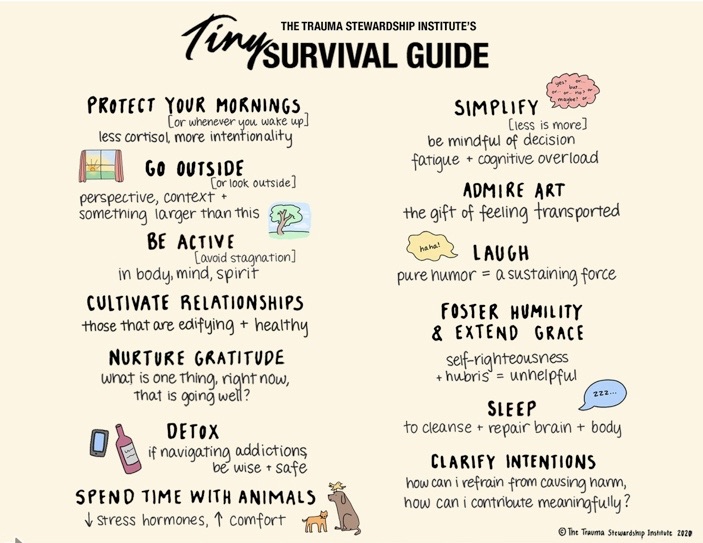The healthiest people who love their work are not immune to burn-out. Other folks are laboring daily in toxic environments. Whether you’re in one of these settings or somewhere in between, taking care of yourself is imperative.
As you think about your daily activities and practices, ensuring that you devote time in self-care. The key is to identify what’s important to you. Do you need to move more, or settle into a relaxing chair with a book? Do you enjoy a healthy meal without distractions, or with the entire family talking all at once? Is it time to go fishing and enjoy the sights of the lake? By investing time in self-care that is significant to you, your efforts will have a positive impact on your ability to think and perform. And, research supports this outcome.
As a Leader, are there actions you might take to reduce the stress of the team? Or, do employees need to be reminded to take advantage of their healthcare benefits including mental healthcare and vacation time?
One scorecard that you can refer to is used in a public health environment. It’s “Eight Dimensions of Wellness”. Julia Reed, LCSW, likes to consider the dimensions as a wheel to ensure balance. If not, the wheel won’t roll smoothly. Here are the Eight Dimensions:
- Emotional / Mental
- Environmental
- Financial
- Intellectual
- Occupational
- Physical
- Social
- Spiritual
The goal is to keep each of these eight elements in balance to the other for overall well-being. Problems will still occur, but practicing resiliency and self-care helps your brain prepare for when the painful moments happen. It will not eliminate pain, but might alleviate suffering. You build strength from within.
Finally, the positive psychology research is also clear regarding the relationship between gratitude and happiness. Gratitude is a sense of thankful appreciation. The more gratitude you identify and acknowledge, the greater your happiness. You may choose to keep a written gratitude journal. Or if writing doesn’t interest you, invest time reflecting on people and items for which you’re grateful and it will unshackle you from toxic emotions. It will also positively impact your personality, physical health, reduce depression and may shift you to have a more positive outlook.
Thank you – I am grateful that you watched Coach to Coach and read this blog. May you experience gratitude daily.

Source of Graphic – Trauma Stewardship, Laura van Dernoot Lipsky


